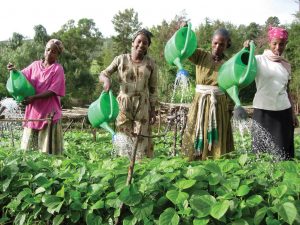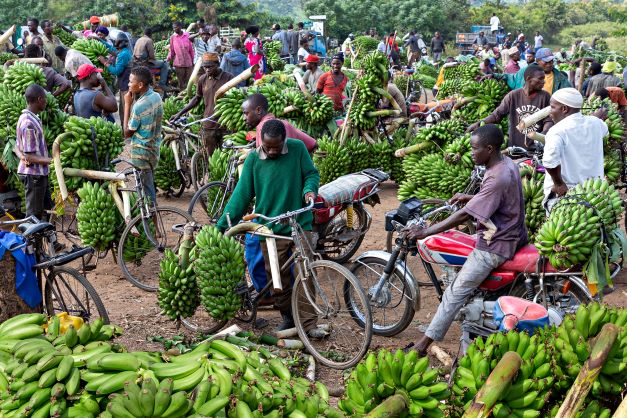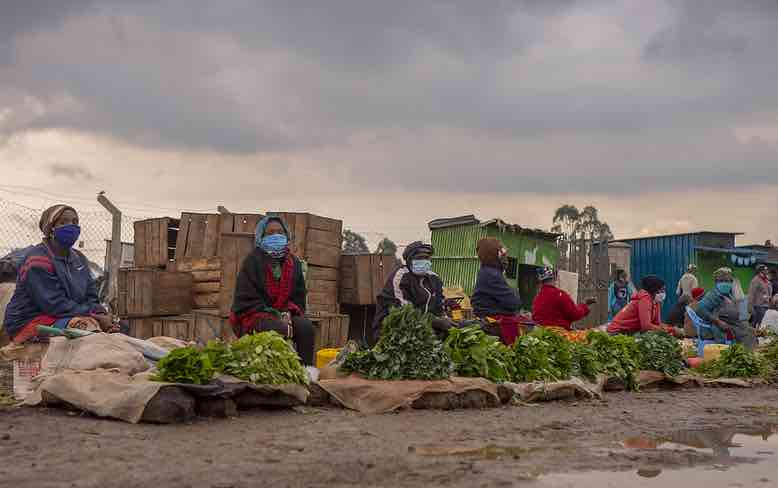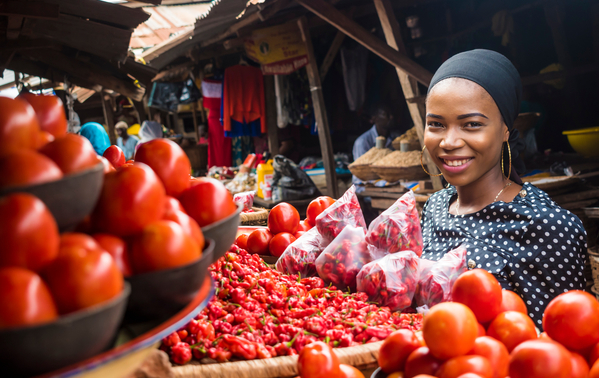 On January 21st – 25th 2019, the Program for Accompanying Research for Agricultural Innovation (PARI) organized a clinic at the IFPRI West and Central Africa Office in Dakar on the program’s research agenda. The thematic covered during these workshops is dedicated to “Targeting investments in innovations and framework conditions across Africa”.
On January 21st – 25th 2019, the Program for Accompanying Research for Agricultural Innovation (PARI) organized a clinic at the IFPRI West and Central Africa Office in Dakar on the program’s research agenda. The thematic covered during these workshops is dedicated to “Targeting investments in innovations and framework conditions across Africa”.
PARI originates from the special initiative of the German Federal Government “One World without Hunger” (SEWOH) funded by the Federal Ministry for Economic Cooperation and Development (BMZ). PARI’s main goal is to contribute to sustainable agricultural growth and food security in Africa and India by supporting the scaling of proven innovations in the agri-food sector in collaboration with all relevant actors. PARI accompanies specified innovations with ex-ante impact research and identifies further innovation opportunities, including those expressed by end users of research in collaboration with the multi-stakeholder innovation platforms. PARI also fosters synergies with and links to existing innovation systems in the respective countries.
The Dakar clinics was also an opportunity to discuss PARI research cluster 1 under two thematics task1 and task3: “Measuring the impact of small-scale irrigation schemes in Niger and Mali for the task1. The objective of this task is to evaluate the potential for small-scale irrigation investment in Niger and Mali based on a combination of biophysical and socioeconomic factors using IFPRI’s ex-ante irrigation potential assessment framework and agent-based modeling.
The third task tackled during the Dakar workshop, is the African Commitments for Agricultural Development”
This task 3 focuses on priority commodities defined for each country to analyze the likelihood of selected country national agricultural investment plans (NAIPs) to achieve Malabo targets, selected Sustainable Development Goals (SDGs) and Agenda 2063. An economic modeling framework will be developed for the selected countries to assess the investments and agricultural transformation requirements to achieve the multiple goals simultaneously.
The objective of both clinics was to train AGRODEP members on tools and models discussed above and to guide them into writing a research report for the countries they are working on. The clinic for Task 1a was led by Jawoo Koo, IFPRI Senior Research Fellow at the Environment and Production Technology Division (EPTD) and was attended by Saadatou Sangaré, Head of Research and Studies Unit at CAPEG in Burkina Faso and Olayide Olawale, Research Fellow at the University of Ibadan, Nigeria. The clinic for Task 3 was led by Dr Ismael Fofana, Research Fellow at IFPRI, and attended by Lulit Mitik;Researcher and Consultant from Ethiopia, Souleymane Sadio Diallo; Researcher at Centre Ivoirien de Recherches Economiques et Sociales (CIRES) in Cote d’Ivoire and Magret Raviro Mabugu, Professor at the University of Pretoria ,South Africa.
According to Fleur Wouterse, Senior Research Fellow at IFPRI-WCAO and coordinator of Research Cluster 1 of the PARI Project, these clinics are essential to the success of the PARI project as they ensure that AGRODEP modelers are well versed in using the latest tools and models relevant to the project’s objectives. Clinics also serve to ground truth results from respective models so that can be understood in a country context.




